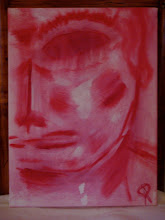
It’s quarter of one on a Saturday afternoon in March, and I’m ready for a nap. I’ve been up since five, as our still-young dog, Molly, apparently miscalculated and had to get up to pee. By the time I am dressed and stand with her outside, I no longer feel sleepy, so I stay awake, but it is catching up with me now. With Molly, too—she is curled up on the sofa fast asleep—and my housemate, who has a bad cold and, after a restless night, has wisely gone back to bed.
I’ve been paying bills, which always leaves me feeling stressed out, even after a good night’s rest. It’s vaguely satisfying to know that everyone has been paid, but the effort leaves my head spinning. It’s time to lie down or take a walk.
With temperatures in the low 40s, gusty winds and gray skies, it seems like a no-brainer: take the nap. But the weekend forecast calls for heavy rain, and it is only sprinkling now. Between this morning’s rain and what is predicted, this may be my best window of opportunity. That angelic-looking dog will be totally wired when she wakes up in a few hours if she does not get some exercise. So I chose to walk.
In certain respects the landscape now resembles the starkness of the Cape Cod dunes. At first you feel as if you are in a world of a few broad, monochromatic bands. But once you have been there awhile, your eyes adjust like night vision, and you see details within each band you missed upon first or second glance.
At a distance, it looks as if a fine red scrim drapes the leafless trees. The blue foothills of the Berkshires are shades of purple and slate gray. The dead grasses covering the fields, dull and uninspiring in sunlight, are a vivid gold, as an ember glows brightly before expiring.
Along the perimeter of the fields, a profusion of maroon and pink blackberry canes arch gracefully in every direction, inspiration and a crude model, perhaps, for the invention of fireworks. I have no doubt that the abstract shapes and lines I paint have their origin in nature.
Rain at this time of year does a better job at coaxing green from the earth than the sun—it always looks brighter after a spring shower. Today is no exception. The fields are noticeably greener than during the previous week of sunny weather.
The earth is deceptively solid in places, like a breached whale before it descends back into the murky depths. It won’t last. Before the end of the walk, some of last week’s puddles have already reappeared and, if the forecast holds true, Monday the land will be submerged again.
While the whale-backed field will temporarily disappear, the flotsam remains. A sea of beer, bottled water and Gatorade is consumed in and around these fields, and their detritus is everywhere. In addition to the cans and bottles, there is industrial waste, from tires to plastic jugs to rusting metal. There are abandoned mattresses, and appliances: a refrigerator, an air conditioner, a toxic computer left, not to rot—they are made of too much plastic and non-biodegradable material—but to permanently (or as close as we know it) scar the landscape.
Many of us experience odd moments when we feel like aliens. My friend Peter, a casual sports fan, tried to make conversation at a Super Bowl party a few years ago, in between plays and during the ads. The dismayed gathering mostly ignored him, and at that instant, he knew he was an alien. There are many places this awareness can happen in modern America (like fast food restaurants, or watching television).
That’s how I experience this garbage. I just don’t get it. It’s not judgmental; I simply cannot understand why anyone would be so careless or indifferent as to violate the beauty of this space. This cavalier attitude is foreign, er, alien to me.
But the world here is too big for the trash to ruin my experience. Lately, my partner and I have become members of a silent resistance, bringing trash bags with us on many of these walks and hauling out as much of this junk as we can carry. It may not amount to much, but it feels better to be engaged than passive
The elements, though, are too daunting for that today.
I reach the end of the dike and pause at the river before turning toward home. The wind now is in my face, and the rain has picked up, needling my cheeks. I have to keep my head down and hold on to my hat. Before long water is dripping from its brim, my glasses are spotted with raindrops, and my hands are red with cold. The wind in my ears is a constant roar; when it briefly lets up now and then it merely allows me to hear it blowing further away, through the trees or across the river.
Molly is unaffected. To her, this could be the most beautiful day of the year. She runs around in mad circles, chases the birds wherever they land, sniffs everything in sight. I see a muskrat swimming in the Mill River, am startled by the brightness of a bluebird. There are deer prints in the mud near the river. Three stoic Hereford cattle lie chewing their cuds, two beneath a lean-to, one in the rain. Until I am back in town, these are the only living creatures I encounter.
The rain lets up once I am on Main Street. We walk swiftly home. Once there, I take a long nap.

No comments:
Post a Comment